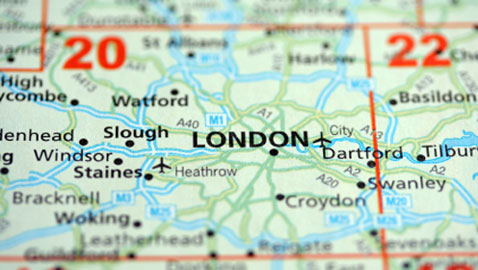
A growing proportion of homeowners in the prime areas of London are cashing in on capital gains to trade up or down, according to estate agent Marsh & Parsons’ latest London Prime Market Monitor.
Home buyers upsizing in the prime areas of London accounted for 19.3% of all moves in Q4 2012. This is its highest level since Q1 2011, and represents a rise from 14.5% in the previous quarter, and 17% a year ago. Those trading up are able to take advantage of capital gains – 11.2% in the last year alone – and a favourable mortgage market for those with equity.
Likewise downsizers, cashing in after strong capital appreciation, make up 6.6% of the sales market, compared to 4.9% a year ago, and 3.6% in Q4 2010.
By stark contrast, the first-time buyer market is still suffering as a result of tight borrowing criteria and high deposit requirements, with the proportion of purchases in the prime areas of London that are made by first-time buyers dropping by 3 percentage points between Q4 2011 and Q4 2012.
International buyers remain in strong numbers in the more traditional areas of prime central London. In the last year, 52% of purchases in Chelsea were made by international buyers, followed by 47% in Kensington and 46% in Notting Hill.
However with the increasing number of homeowners recycling wealth within the capital, domestic buyers are rapidly growing in prominence. In the fourth quarter of 2012, 73% of purchases in prime London were made by domestic buyers, driven by the activity of UK nationals outside Kensington and Chelsea. This compares with 71% of purchases in the previous quarter and 67% at the start of the year.
Domestic buyers were in stronger concentrations outside the most expensive and traditionally prestigious central areas. In 2012, Balham proved most popular for domestic buyers, with 89% of all buyers in the area being UK nationals while Clapham saw 86%.
Peter Rollings, CEO of Marsh & Parsons, said: “International buyers are a crucial part of the patchwork of London’s prime property market, especially within central areas. But the importance of domestic buyers is often overlooked – and it grew as 2012 progressed as they recycled wealth within London.
“Longer term homeowners have seen their equity soar on the back of substantial price growth in the last few years, and many are taking the opportunity to unlock equity by downsizing, or use their increased financial clout to secure the finance they need to upsize.
“The Funding for Lending Scheme is knocking down rates, and, unsurprisingly, banks are still favouring those with substantial deposits with the best deals. This is playing into the hands of London homeowners who have seen their equity grow and are looking to move.”
The growth in property values in the prime areas of London slowed to 1.3% in Q4 2012, compared to 3.5% in the previous quarter as the supply of property on the market increased by 3.6%. However, despite the quarterly slow down, annual growth was 11.2% on the back of more rapid growth earlier in the year.
Prime London Property Price Movements
| Average value | Quarterly Change | Annual Change | |
| Prime London | £ 1,310,236 |
1.3% |
11.2% |
| Prime Central London | £ 1,901,265 |
0.8% |
9.8% |
Despite the slower capital growth in the last quarter, 43.5% of properties across the prime areas of London were worth £1m or more in December, a figure that has risen from 43% in September, and 37.5% in December 2012.
Rollings added: “Supply increased for a second successive quarter, and this has helped rein in the level of price growth seen earlier in 2012. Without further interventionist government property tax policy, we anticipate the market to gradually move on from the additional tax burdens placed on many prime buyers last year, and a strong spring will help drive steady growth for the remainder of the year.”















